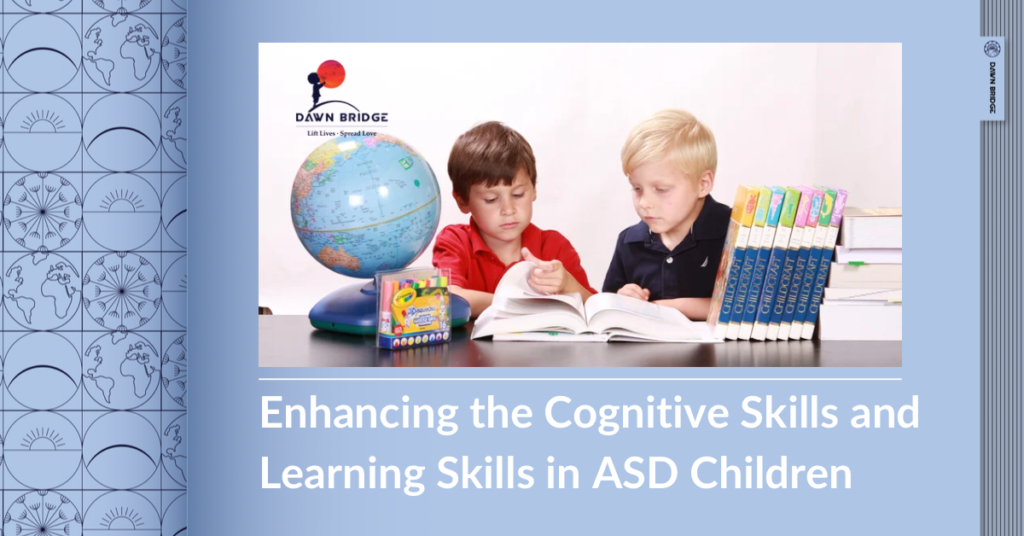Cognitive skills involve acquiring factual information, which is a skill that deals with human perception, thinking and learning. Learning skills describe the tasks involved in learning, including time management, note-taking, reading effectively, study skills, and writing tests. Autism spectrum disorder (ASD) is a complex neurobiological disorder characterised by physical symptoms, cognitive impairment, stereotyped behaviour and little learning difficulty. It is challenging for medical practitioners and parents to encounter because the exact mechanism is still unclear. Apart from pharmacology intervention, behaviour therapy, and nutritional therapy, other alternative treatments may help their cognitive and learning skills.
Here is the list of alternate therapies:
Music Therapy
By definition, it is a clinical use of music to encounter specific health problems. Music therapy experience may include listening, singing, playing instruments, or composing music. In studies, musical improvisation may help autistic children develop communication and interaction skills for social adaptation.
Therapeutic Horseback Riding
Horseback riding therapy is a type of recreational therapy that involves a patient with little to no riding experience assisted by a trained riding instructor. The instructor teaches the student basic horseback riding and training techniques that improve the student’s motor and cognitive function. It can help stimulate multiple domains of functioning (e.g. cognitive, social, gross motor) in children with ASD.
Animal/Pet Therapy
The therapy is a guided interaction between a person and a trained animal. Hence reduces social stress and increases the social behaviours of an autistic child.
Yoga
Yoga poses have a significant effect on sociability, cognition, awareness, and physical behaviour. Children with ASD, after receiving eight weeks of yoga, including breathing poses, and relaxation, will improve socially directed verbal communication skills.
Qigong
It seems to decrease the severity of individual sensory, behavioural, and language components of autism and improve self-control, sociability, sensory, cognitive awareness and healthy-physical behaviour.
Biofeedback
It focuses on regulating the autonomic system, leading to overarousal and impairments in language and social engagement.
Hypnotherapy
It seems to utilise restrictive, repetitive behaviours in the autistic child
Mindfulness Therapy
Mindfulness-based therapies can reduce psychological distress and improve social responsiveness, social communication, social cognition, and motivation.
To sum up
It is a long journey for medical practitioners and parents to learn many aspects of their autistic child. They are different in their personality even though they share the same disorder. Parents could let their autistic child try new therapies as long as they are scientifically proven and carried out by certified professionals. Parents should also observe their autistic children because their cognitive and learning skills may have improved or worsened depending on how much they care about their children. Nevertheless, always remember to consult doctors whenever parents inquire about their children’s condition and make a shared decision with medical professionals and your children.
References:
- Lai CJ, Liu WY, Yang TF, Chen CL, Wu CY, Chan RC. Pediatric aquatic therapy on motor function and enjoyment in children diagnosed with various motor severities cerebral palsy. J Child Neurol. 2015 Feb;30(2):200-8. doi: 10.1177/0883073814535491. Epub 2014 Jun 5. PMID: 24907137.
- Kaur M, Bhat A. Creative Yoga Intervention Improves Motor and Imitation Skills of Children With Autism Spectrum Disorder. Phys Ther. 2019 Nov 25;99(11):1520-1534. doi: 10.1093/ptj/pzz115. PMID: 31765484; PMCID: PMC7325451.
- Sotoodeh MS, Arabameri E, Panahibakhsh M, Kheiroddin F, Mirdoozandeh H, Ghanizadeh A. Effectiveness of yoga training program on the severity of autism. Complement Ther Clin Pract. 2017 Aug;28:47-53. doi: 10.1016/j.ctcp.2017.05.001. Epub 2017 May 9. PMID: 28779937.
- Rodrigues JM, Mestre M, Fredes LI. Qigong in the treatment of children with autism spectrum disorder: A systematic review. J Integr Med. 2019 Jul;17(4):250-260. doi: 10.1016/j.joim.2019.04.003. Epub 2019 Apr 19. PMID: 31053555.
- Sugarman LI, Garrison BL, Williford KL. Symptoms as solutions: hypnosis and biofeedback for autonomic regulation in autism spectrum disorders. Am J Clin Hypn. 2013 Oct;56(2):152-73. doi: 10.1080/00029157.2013.768197. PMID: 24665817.
- Sinha Y, Silove N, Hayen A, Williams K. Auditory integration training and other sound therapies for autism spectrum disorders (ASD). Cochrane Database Syst Rev. 2011 Dec 7;2011(12):CD003681. doi: 10.1002/14651858.CD003681.pub3. PMID: 22161380; PMCID: PMC7173755.
- Hartley M, Dorstyn D, Due C. Mindfulness for Children and Adults with Autism Spectrum Disorder and Their Caregivers: A Meta-analysis. J Autism Dev Disord. 2019 Oct;49(10):4306-4319. doi: 10.1007/s10803-019-04145-3. PMID: 31342444.
- de Bruin EI, Blom R, Smit FM, van Steensel FJ, Bögels SM. MYmind: Mindfulness training for Youngsters with autism spectrum disorders and their parents. Autism. 2015 Nov;19(8):906-14. doi: 10.1177/1362361314553279. Epub 2014 Oct 27. PMID: 25348866.
- Wang L, Peng JL, Qiao FQ, Cheng WM, Lin GW, Zhang Y, Gao TG, Sun YY, Tang WZ, Wang P. Clinical Randomized Controlled Study of Acupuncture Treatment on Children with Autism Spectrum Disorder (ASD): A Systematic Review and Meta-Analysis. Evid Based Complement Alternat Med. 2021 Jul 24;2021:5549849. doi: 10.1155/2021/5549849. PMID: 34349825; PMCID: PMC8328702.
- Allam H, ElDine NG, Helmy G. Scalp acupuncture effect on language development in children with autism: a pilot study. J Altern Complement Med. 2008 Mar;14(2):109-14. doi: 10.1089/acm.2007.0508. PMID: 18315511.
- Gawrilow C, Stadler G, Langguth N, Naumann A, Boeck A. Physical Activity, Affect, and Cognition in Children With Symptoms of ADHD. J Atten Disord. 2016 Feb;20(2):151-62. doi: 10.1177/1087054713493318. Epub 2013 Jul 26. PMID: 23893534.

